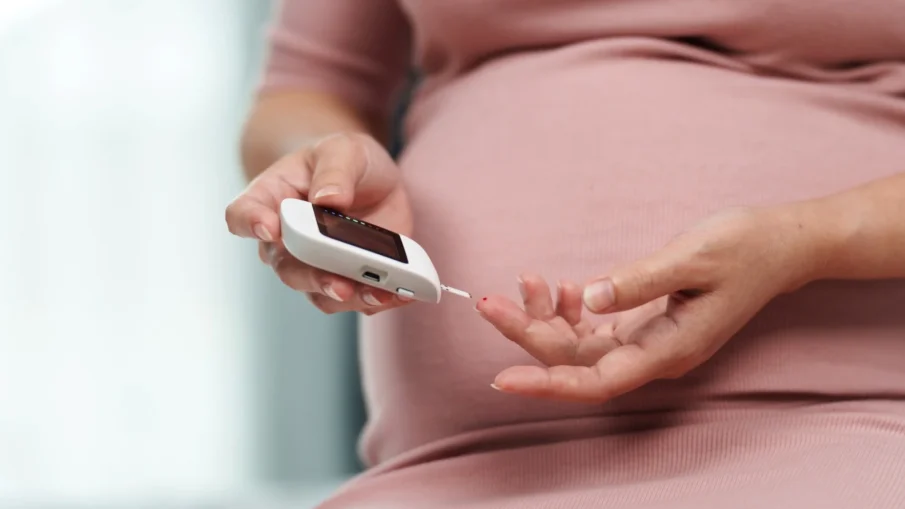Gestational diabetes (GD or GDM) is a type of diabetes that develops exclusively in pregnancy when blood sugar levels get too high (hyperglycemia). It happens when the hormones from the placenta block your ability to use or make insulin. Insulin helps your body maintain the right amount of glucose in your blood. Too much glucose in your blood can lead to pregnancy complications. GD usually appears during the middle of pregnancy, between 24 and 28 weeks.
Developing GD doesn’t mean you already had diabetes before you got pregnant. The condition appears because of pregnancy. People with Type 1 and Type 2 diabetes before pregnancy have their own, separate challenges when they become pregnant.
CAUSES OF GESTATIONAL DIABETES
Hormonal Changes During Pregnancy
During pregnancy, the placenta produces hormones like human placental lactogen, estrogen, and cortisol. These hormones can block the action of insulin, making it harder for the body to regulate blood sugar—this is called insulin resistance. As pregnancy progresses, insulin resistance increases, and if the pancreas can’t keep up by producing enough insulin, blood sugar levels rise.
Overweight or Obesity
Being overweight before or during pregnancy increases the risk of gestational diabetes. Excess fat, especially around the abdomen, can increase insulin resistance, meaning the body requires more insulin to manage blood sugar. If the pancreas can’t meet this demand, gestational diabetes may develop.
Family History of Diabetes
A woman with a close relative (parent or sibling) who has type 2 diabetes has a higher risk. This is likely due to a genetic predisposition to insulin resistance or poor insulin production, which can become problematic when the demands of pregnancy increase insulin needs.
Advanced Maternal Age (Over 25 or 30)
Women who are older when they become pregnant (especially over 30) are more likely to develop gestational diabetes. As people age, insulin sensitivity naturally declines, and age-related changes in metabolism can impair the body’s ability to process glucose efficiently during pregnancy.
IN CONCLUSION
If you have gestational diabetes, your pregnancy care provider will have you visit a nutritionist who specializes in gestational diabetes. They’ll also talk to you about checking or testing your blood sugar at home, and what your levels should be after meals. Fortunately, gestational diabetes is well understood, and healthcare providers are usually able to help you manage the condition with small lifestyle and dietary changes. Most people don’t experience serious complications from gestational diabetes and deliver healthy babies.
All information about Gestational Diabetes were obtained from Cleveland Clinic.



